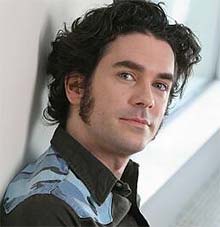While the screenings of almost 100 short films, and the accompanying whirlwind of social events, are the mainstay of the Dawson Film Fest, it’s not all popcorn and gawking for those in attendance. On top of an impressive local contingent, the DCISFF attracts filmmakers from all over the continent, but especially northern creators, and many come here to help learn and grow as cinematic artists.
Good Friday saw two well-attended and intensive free workshops targeting the technical aspects of filmmaking.

From 9 am- to 12 pm a workshop entitled Unlocking Final Cut Pro 7 (FCP7) taught by Van Cooper. Targeting small rpoducers, the seminar concentrated on the finishing tools of Final Cut Pro 7. Apple has just released the newest version of the industry-standard tool – Final Cut X, but many filmmakers/editors are still working with FCP7. Smaller, independent producers also do not have access to high end finishing software. Cooper showed how to unlock the Video and Audio Filters that are needed to fine-tune a project for release, including grading/colour correction and how to clean up sound files. He also touched on some of the “special effects” that can be created with the tool.
Cooper is an experienced television and film editor and colorist, with industry experience that ranges from offline/ online/vfx editor to colorist, postproduction supervisor, editing supervisor and workflow consultant. He’s earned credits from several Hollywood films, shorts, television series’ and commercials.

From 1–4 pm Flick Harrison hosted a workshop called DSLR Video for Filmmakers! Participants were introduced to DSLR cinematography for documentary and drama. They were able to bring their own DSLR camera and compare with those of other participants. Harrison discussed the differences between DSLR cameras and dedicated film or video cameras, including advantages and disadvantages in comparison to ENG and cinema cameras around Run’n’gun, sound, stabilization, form factor, overheating, and data rates.
Flick Harrison is a writer, media artist, filmmaker, hacker, community artist, educator and drone pilot in Vancouver. Starting out on the CBC youth series Road Movies as one of Canada’s first professional videographers, he’s since made videos in Pakistan, the US, Mexico and China. As part of the Art and Social Change project, he is studying community arts across Canada in conjunction with SFU, Concordia, U of A and U of T.

Cooper and Harrison then participated in a panel discussion on Saturday from 12:30 pm-1:30 pm called Future Post. The session was a lively debate on the future of video editing software, sparked by the the recent launch of Apple’s Final Cut X, which has brought about a dramatic shift away from FCP7. The two panelists led a moderated discussion on the future of editing software with reference to Final Cut X, Adobe Premiere, and the life expectancy of Final Cut 7.
Later that day, filmmakers were given a guided tour of funding opportunities for independent producers in the Yukon. Called Moving Pictures and Arts Funding, the session targeted media artists, filmmakers, documentarians, and cinematographers who are among the many film artists in Yukon’s cultural industry. The Arts Section of the Yukon Government’s Department of Tourism & Culture, administers eight funds that support artistic, community, and professional development relevant to arts practitioners. Ross Burnet, Fund Administrator, explored and discussed how film artists can take advantage of Arts Funding. The briefing focused on: Arts Fund, Advanced Artist Award, Touring Artist Fund, Cultural Industries Training Fund. Burnet also made himself available throughout the festival weekend to meet artists to discuss funding or projects.
– Danny Dowhal
